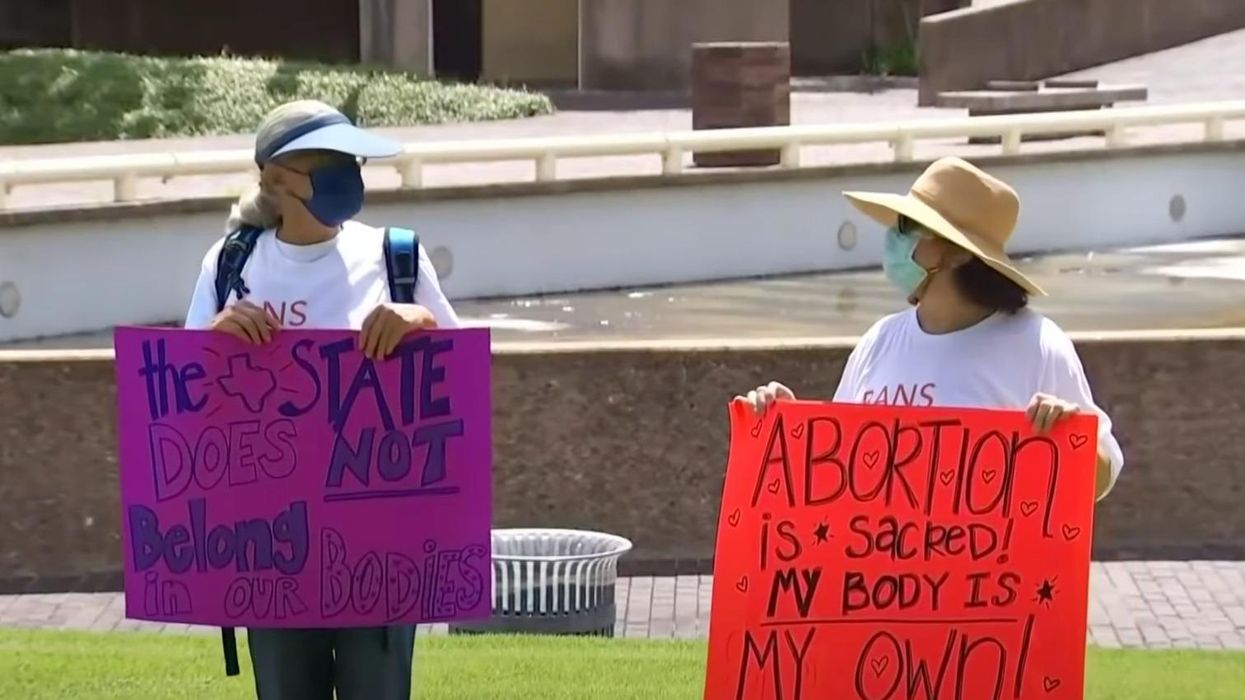What Abortion Opponents Should Do Now -- If They Actually Want To Help Women
What is the pro-life movement? I've always imagined it to be broader than just efforts to make abortion illegal. In the wake of the 2022 elections, in which voters rejected candidates whose abortion postures were perceived as extreme, those who care about the welfare of unborn children might want to rethink their focus.
Arguably, the immediate aftermath of the Dobbs v. Jackson decision has been a legal tangle. A number of states had adopted so-called "trigger laws" during the regnancy of Roe v. Wade, specifying that if and when Roe was overturned, abortion would be restricted in a variety of ways. Idaho's law, for example, prohibited abortions except in cases of rape, incest and danger to the life of the mother. Louisiana's law did not permit exceptions in cases of rape or incest, but only for the life of the mother or "serious permanent impairment of a life-sustaining organ of the pregnant woman." Utah's law contains an exception for "severe fetal abnormality." In 11 states, bans have been blocked by courts. Litigation continues and is likely to persist for years as courts grapple with cases that reveal the limitations and ambiguities of the laws.
In Ohio, a ten year-old rape victim was forced to travel to Indiana for an abortion. Pro-lifers initially thought the story was invented, but it was true. Ohio's law, like Louisiana's, permitted abortion when a "medically diagnosed condition ... so complicates the pregnancy of the woman as to directly or indirectly cause the substantial and irreversible impairment of a major bodily function." It's common knowledge that pregnancy is dangerous for very young girls, but under Ohio's law, would being ten qualify as a "medically diagnosed condition"?
Voters have demonstrated a clear preference for laws that permit abortion in the early stages. Kansas led the way last August by rejecting a constitutional amendment that would have permitted the legislature to adopt strict limits. In the midterms, abortion restrictions were defeated across the board. It's safe to say that the legal strategy of outlawing abortion is facing a prolonged backlash at the hands of voters.
What can the pro-life movement realistically expect to achieve with the narrow focus on the law? Thirteen mostly low-density states have adopted abortion bans (for now). How many fewer abortions will there be in America as a result? The states with the highest numbers of abortions are mostly blue. The District of Columbia has the highest rate with 32.7 abortions per 1,000 women of childbearing age. New York is second, followed by New Jersey and Maryland. The bottom ten states for abortion are all red, and most are sparsely populated: Wyoming, South Dakota, Kentucky, Idaho, and more like that. And, as you can surmise from the geography, most abortions are sought by Black (38 percent) and Hispanic (21 percent) women. Whites account for 33 percent.
Today the majority of abortions in America are medication abortions. A number of states have moved to ban abortifacients, but considering our national success rate at restricting cocaine, fentanyl, and heroin, such laws are going to be leaky at best.
While the rate of abortion has decreased dramatically since 1990, the percentage of poor or low-income women getting abortions has increased sharply. According to the Alan B. Guttmacher Institute, 75 percent of women terminating pregnancies in 2014 were either poor or low-income.
Their reasons for seeking abortions vary, but women often cite economic hardship among the chief motivators. So the pro-life movement is, in essence, adding a nuisance factor for poor and minority women in red and purple states.
The accusation against the pro-life movement that I've always thought was unjust was that they cared little for actual mothers and babies and simply wanted to control women, or worse, to harm women. The blinkered legal strategy tends to give that accusation a whiff of plausibility. Why not concentrate on concrete reforms that can make a difference in women's lives?
We need a huge push to get contraceptives into the hands of all women who want them. Half of women with unintended pregnancies had not used birth control in the month they conceived. Many cite cost as a factor. A doctor's appointment should not be necessary to obtain oral contraceptives. All of the major medical groups agree. So, let's kickstart a campaign to permit the over-the-counter sale of birth control pills.
Every abortion is a tragedy. And while it's unrealistic to use the law to forbid women to abort if that's what they are determined to do, there are thousands of expectant mothers who wish there were an alternative. They need financial and moral support and we should provide it. Wouldn't it be better to devote time and money to support groups for struggling moms than to limiting the exceptions to pregnancy termination in Louisiana? Every child should be welcomed in love. The pro-life movement should concentrate on helping more women to avoid unintended pregnancies, and ensuring that expectant mothers who really just need financial or practical or emotional support can find it.
Mona Charen is policy editor of The Bulwark and host of the Beg to Differ podcast.
Reprinted with permission from Creators.




